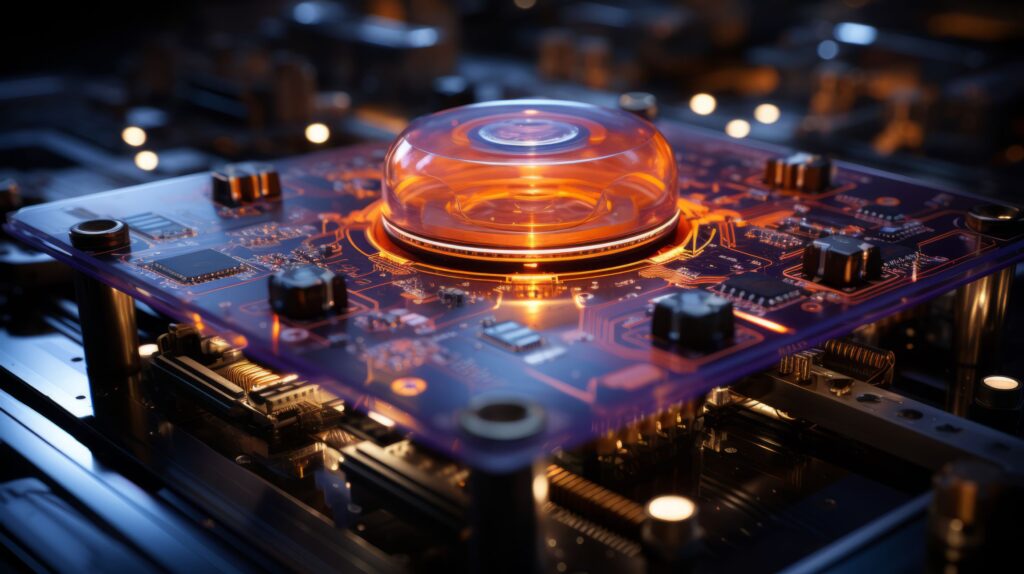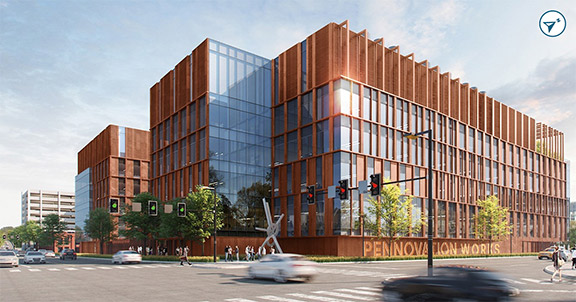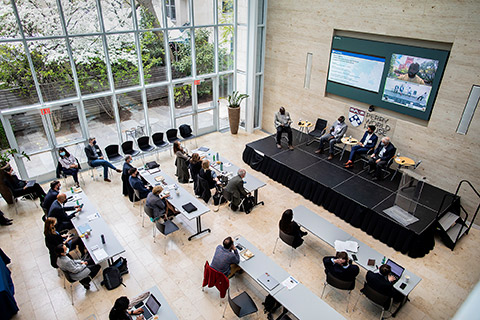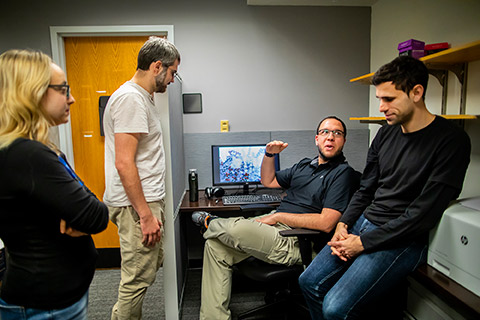Current Initiatives
A primary aim of the OVPR is to facilitate innovative technology and infrastructure that supports pioneering research across disciplines.
The complexities of interdiciplinary research require an intricate, robust, and sophisticated network of resources and support. Penn continually develops and invests with an eye toward the future discoveries across disciplines that can only be achieved through strategic intiatives to innovate.
Our vision for research at Penn includes…
Exploring New Frontiers in AI at Penn
This initiative, designed to propel the University’s research in artificial intelligence (AI) and data science to new frontiers, embodies the goals of Penn’s new strategic framework, In Principle and Practice, to lead on the great challenges of our time by harnessing interdisciplinary innovation to achieve the most impactful research outcomes.
The council of faculty leaders in AI research will provide strategic input, coordinate cross-disciplinary research, and catalyze new initiatives for Penn’s expanding leadership in AI. Its work will include engaging all twelve Penn schools, enhancing the visibility and impact of Penn AI research, facilitating networking and connections across all disciplines, and developing new programs, workshops, and other events across campus.

Penn Advanced Research Computing Center (PARCC)
In the last decade, Penn has been at the forefront of a dramatic shift towards computational and data-driven scholarship. The Penn Advanced Research Computing Center (PARCC) will be a key platform for computational and data-driven research across campus with hardware, software, system support, and research consulting services. Combining enhanced power, capacity, and speed previously unavailable, Phase I of PARCC includes a high-performance computing (HPC) data cluster housed at a regional colocation data center.
PARCC will provide access to additional GPUs and CPUs built on shared high-speed storage and networking infrastructure that will double the current capacity at Penn. This initiative is rooted in Penn’s legacy as a computational powerhouse, dating back to the creation of the ENIAC. These investments in infrastructure will create more efficient and flexible abilities to collaborate and scale new research.

Expanding Pennovation Works in 2024 and Beyond
The University of Pennsylvania is preparing the next phase of space dedicated to research and development for faculty and Penn-affiliated startups through a $365 million expansion of Pennovation Works. This unique blend of offices, labs, and production space is Penn’s tangible commitment to bridging the gap between intellectual exploration and entrepreneurial initiative.
Following the opening of the 65,000 square foot Pennovation Lab in 2022, the next phase introduces a state-of-the-art building with approximately 387,000 square feet for research and development, complemented by 68,000 square feet for biomanufacturing. This expansion will be an increase in physical research space and a significant step towards bolstering innovation and economic development in close proximity to Penn’s campus.

Advancing Penn’s Research Through National Initiatives and Investments
This past year has been pivotal for Penn’s research landscape, shaped significantly by new federal investment paradigms. Engagements with local, regional, and federal agencies have been intensified to leverage opportunities presented by ARPA-H and initiatives from the Inflation Act, the Infrastructure Act, and the CHIPS and Science Act and the new Directorate for Technology, Innovation, and Partnerships. Penn continues deep engagement with these national research initiatives, reflecting a commitment to staying aligned with evolving federal research priorities.
Supporting International Research
The University of Pennsylvania deeply values its international connections, recognizing the immense benefits of global academic collaboration. This commitment to international engagement is a cornerstone of Penn’s mission. By fostering an open exchange of ideas among students, faculty, and global partners, Penn not only strengthens its academic community but also contributes significantly to the advancement of human knowledge. In recognizing the importance of international engagement, recent guidance provided by the OVPR aims to promote research productivity unencumbered from the stress of needless outcomes related to regulatory burden.

Strengthening the Postdoctoral Training Experience
Penn’s recent enhancements in postdoctoral compensation and the establishment of the Office of Postdoctoral Affairs are pivotal steps in enriching the postdoctoral experience. Implemented in the summer of 2023, these improvements reflect Penn’s dedication to supporting its postdoctoral community, ensuring they are recognized through robust support and have access to a myriad of professional development opportunities. These changes are more than just administrative; they are a reaffirmation of Penn’s commitment to fostering the next generation of researchers and academics.

Modernizing University-wide Research Information Systems
In an era where efficiency and compliance are crucial to success in research, Penn is actively upgrading its research information systems. These enhancements, spanning multiple platforms, are tailored to streamline crucial research tasks, ensuring adherence to compliance standards. This modernization is a significant leap towards optimizing research management, facilitating a seamless and efficient research environment for Penn’s research community.